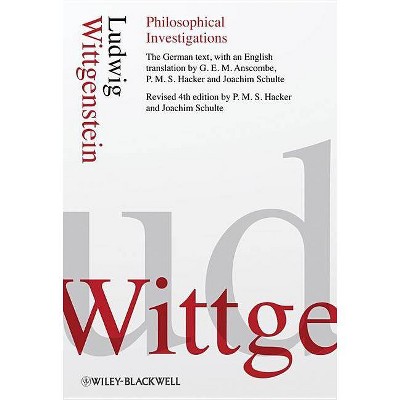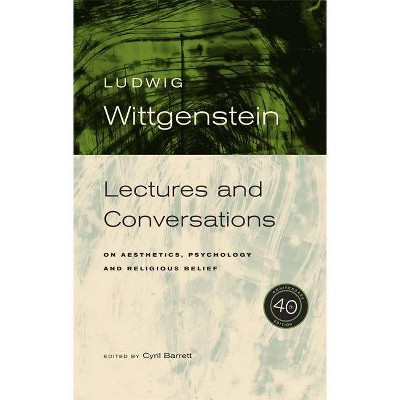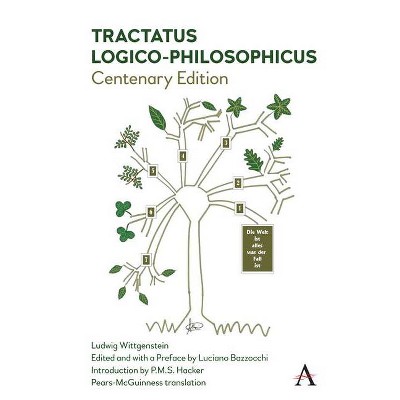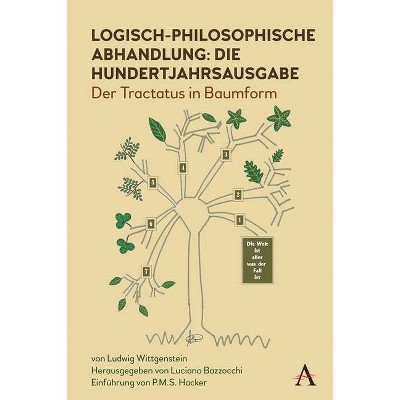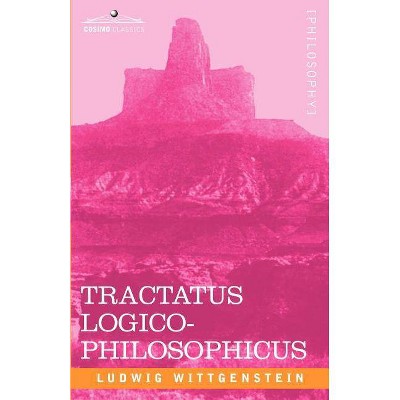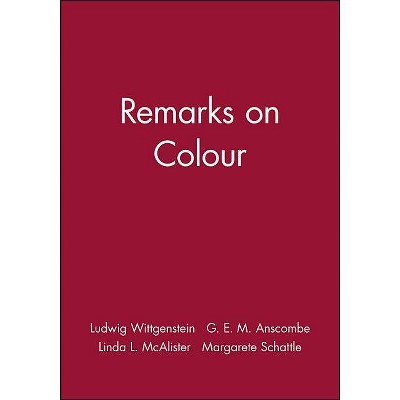Philosophical Grammar - by Ludwig Wittgenstein (Paperback)
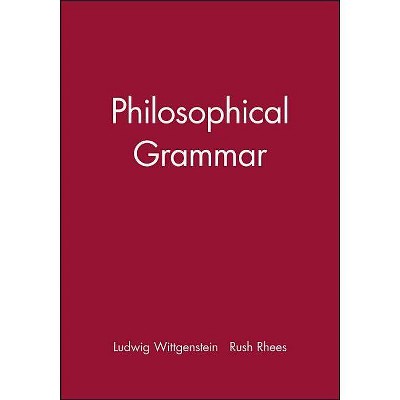
Similar Products
Products of same category from the store
AllProduct info
<p/><br></br><p><b> Book Synopsis </b></p></br></br>Wittgenstein wrote the Philosophical Grammar during the years 1931 to 1934 - the period just before he began to dictate the Blue Book. Although it is close to the Investigations in some points, and to the Phiosophische Bemerkungen at others, the Philosophical Grammar is an independent work which covers new ground. It is Wittgenstein's fullest treatment of logic and mathematics in their connection with his later understanding of 'proposition', 'sign', and 'system'. He also discusses inference and generality - critisizing views of Frege and Russell as well as earlier views of his own - and the treatment of mathematical proof in this book, especially of inductive or recursive proofs, is deeper and more extensive than previously.<p/><br></br><p><b> From the Back Cover </b></p></br></br>Wittgenstein wrote the <i>Philosophical Grammar</i> during the years 1931 to 1934 - the period just before he began to dictate the <i>Blue Book</i>. Although it is close to the <i>Investigations</i> in some points, and to the <i>Phiosophische Bemerkungen</i> at others, the <i>Philosophical Grammar</i> is an independent work which covers new ground. It is Wittgenstein's fullest treatment of logic and mathematics in their connection with his later understanding of 'proposition', 'sign', and 'system'. He also discusses inference and generality - critisizing views of Frege and Russell as well as earlier views of his own - and the treatment of mathematical proof in this book, especially of inductive or recursive proofs, is deeper and more extensive than previously.<p/><br></br><p><b> About the Author </b></p></br></br><b>Rush Rhees</b> was a pupil of Ludwig Wittgenstein and is one of his literary executors. <p><b>Anthony Kenny</b> is Master of Balliol College, Oxford.</p>
Price History
Price Archive shows prices from various stores, lets you see history and find the cheapest. There is no actual sale on the website. For all support, inquiry and suggestion messages communication@pricearchive.us
